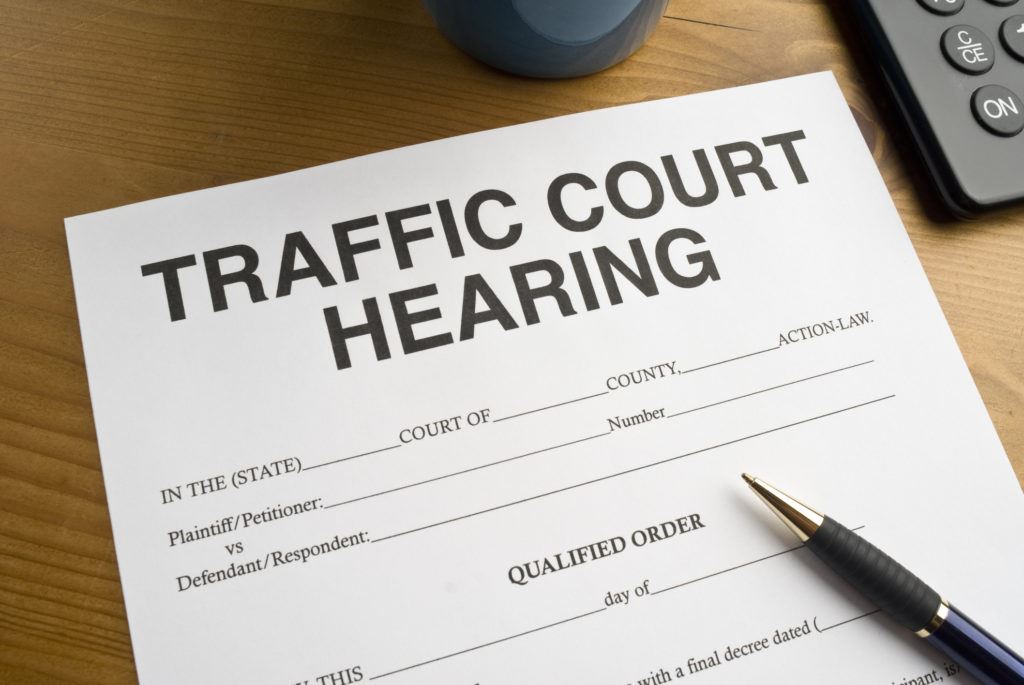How to get the best results in traffic court

Nobody likes going to court. That’s why the majority of people that receive traffic violations would prefer to just pay their fine, but it’s possible to get greatly reduced fines and penalties, or even have charges completely dropped, by simply showing up to traffic court. If you do opt to appear before a judge — or if you are compelled to for a more serious charge — there are proven methods of behavior that can ensure the best outcome.
- Dress the part. A judge’s first impression of you can go a long way. Dress for a professional setting and avoid casual garments like jeans, t-shirts, and sneakers.
- Be polite and respectful. Not just to the judge, but to clerks, present officers, and other defendants. Don’t interrupt or talk back. If someone is out of line, like the accusing officer in your case, that is for the judge to handle, not you.
- Use accepted decorum. Always refer to the judge as “Your Honor,” but also make sure to call the accusing officer “officer.”
- Respect everyone’s time. Traffic courts can hear dozens of cases every day. Be on time. Avoid wasting anyone’s time by rambling, asking irrelevant questions, or cracking jokes. Pay attention and make sure you are ready to go and have any necessary materials you brought with you when it is your turn.
- Leave the kids at home. Yes, it can be difficult finding child care, especially during the day, but court is a boring place and children can become restless. If they begin acting up, that can cause delays, and draw unwanted negative attention to you.
How do I argue against a violation?
If you’re going to court to argue down a charge, or try to get it dismissed, even if you’re not a lawyer there are methods that can help you be successful.
- Show up. This probably seems obvious, but often just showing up in court to contest a violation can be enough to get reduced fines and penalties.
- Mistake of fact. Typically ignorance of the law is not an acceptable excuse for breaking it, but sometimes you can justify a mistake if there are circumstances that work against you having all the information about a situation. For example, if a stop sign is blocked by a bush, or if lane dividers are so worn down they’re indistinguishable. If you can properly prove something out of your control was the cause, it can greatly help you.
- Justify the violation. Extenuating circumstances will be considered by a judge. For example, if you were cited for speeding, perhaps it was a very windy day and you were trying to pass a swerving truck, or maybe you were responding to an emergency. This can be particularly effective if you have proof, such as for example, a hospital bill.
- Dispute opinion. An officer’s personal opinion can often be a factor in their decision to write a citation, such as if you were following a car too closely, but opinions are not fact. If an officer says you made an unsafe lane change, but it was raining and your vision was impaired, you could argue that in your opinion you were as safe as possible given the conditions.
- Present evidence. If possible, bringing evidence that your actions were either justified or not illegal at all, can be the most powerful way to sway a judge’s opinion. Maybe you have dashcam footage of the incident, or you’ve downloaded GPS information that shows you weren’t speeding. In a mistake-of-fact situation, pictures of the area that clearly show the circumstances that led to your violation will be invaluable.
There are plenty of situations in which you can safely argue a traffic violation, but certainly not all of them. With offices in Baltimore, Columbia, Towson, Northern Virginia, Westminster, and Dundalk, we’re here to help you with any questions you may have. Contact us, or call our experts at Albers & Associates at (443) 665-8030 to learn how we can aid you.
The post How to get the best results in traffic court appeared first on Albers and Associates.